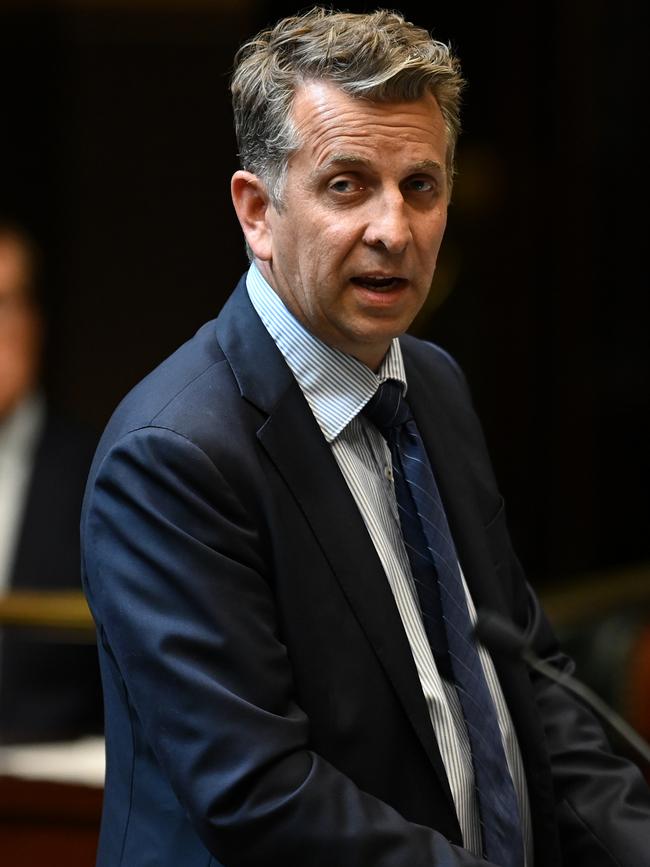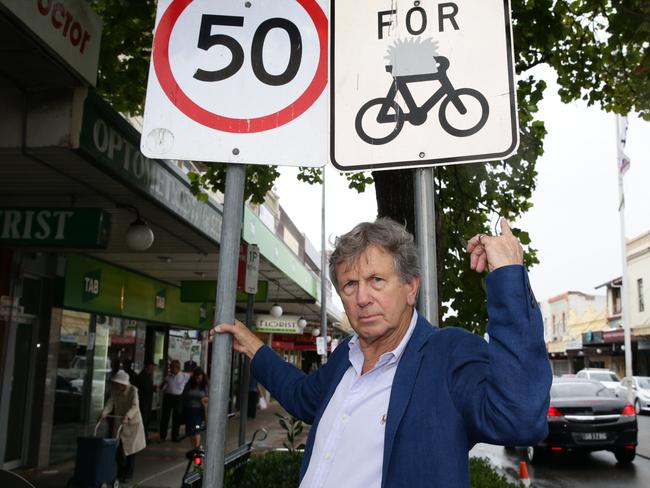Oatlands tragedy prompts state government to host road summit
A Towards Zero Road Safety Summit will be held as the state government grapples with ways to reduce road carnage including lowering the drink drive limit and the average 100km/h speed limit. Here is what is being proposed.
NSW
Don't miss out on the headlines from NSW. Followed categories will be added to My News.
A drink-drive limit of 0.02, point-to-point or average speed cameras for cars and no warning signs around mobile speed traps are just some of the measures the state government will consider introducing.
They are among a raft of road safety initiatives on the table at the state’s first-ever Towards Zero Road Safety Summit to be held on March 23, designed to help the government decide what new measures are needed to meet its target of no fatalities by 2056.

Around 100 international transport experts will join state government road safety officials at the summit, with measures implemented in Norway and Sweden to be among the key items up for discussion.
MORE NEWS
Calls to allow dogs on public transport
Billionaire’s vision for Parramatta unveiled
The summit follows calls from Oatlands father Danny Abdallah for major road reform in the wake of the crash that claimed the lives of his three children.
His pleas have been echoed by Dianne Proctor, whose policeman husband Tim died after his car was struck head-on, Brodie Donegan, whose unborn daughter died at 32 weeks in a car crash involving a drugged driver and Bronko Hoang, whose 23-year-old wife Katherine and their unborn twins were killed in fatal crash on The Northern Road in 2018.



To be chaired by journalist Chris Bath, the summit will guide Transport and Roads Minister Andrew Constance and Regional Transport and Roads Minister Paul Toole in developing the state’s next road safety plan.
“Road trauma has a devastating impact on the wider community,” Mr Constance said.
“Last year, 352 people lost their lives and almost 11,000 people were seriously injured on NSW roads, so it’s crucial we continue to look at ways to reduce these numbers.
“The loss of life and serious injuries caused by road crashes is avoidable and we are firmly committed to working towards zero road trauma in our state by 2056.”
Mr Toole said it was essential all levels of government worked together to look at the ways lives could be saved on the state’s roads.
“The regions make up just one third of NSW’s population, but make up two-thirds of the state’s road toll, with 233 lives lost on our regional roads last year,” he said.


With the state’s population growing and more cars on the road, Centre for Road Safety executive director Bernard Carlon said it was imperative that new measures to cut the road toll and serious injuries were implemented.
“If we do nothing, it will go up,” he said.
“If we do no more than we are doing now, because of population increases and increasing vehicles on our roads, it will go up.
“Both Sweden and Norway are two of the best performing road safety countries in the world in terms of their rate of trauma. We aren’t doing that badly, but we are not doing as well as them. We really have been following them for the last 30 years.”
The blood alcohol limit in Sweden and Norway is 0.02, something that would be canvassed at the summit in light of 57 people being killed in crashes in NSW last year where somebody had been drink driving — and 384 over the past five years, along with 1961 serious injury cases, he said.

As for speeding, the summit will also examine expanding average speed cameras to include passenger cars instead of just heavy vehicles.
International research suggested the cameras were fairer than a fixed camera as they measured the average speed over a length instead of just at one spot.
Across Australia, NSW is the only state that restricts the cameras to heavy vehicles.
The cameras are in 25 regional locations with another 11 to be rolled out on major metropolitan roads such as the Sydney orbital.
Should the cameras be “turned on” for passenger vehicles, they would not replace fixed camera entirely, which had a major role to play in deterring dangerous driving at black spots and intersections, Mr Carlon said.
Another measure to be examined is the removal of warning signs for mobile cameras.
Speed-related crashes claimed 138 lives last year, and 745 over the last five years, with almost 6700 people seriously injured.

“If we had everybody drive under the speed limit from tomorrow, then we would have a massive reduction in the number of people who are killed and seriously injured,” he said.
The default regional speed limit of 90km/h in Norway and 80km/h in Sweden will also be examined and compared with NSW, where it is 100km/h.
The impact of both countries having more cars on their roads with automatic emergency braking and lane assist technology will also be assessed. Road infrastructure measures such as median separation was being addressed with the state’s five-year, $800 million road budget, he said.
While NSW was behind Scandinavia, it was a leader in other areas of road safety, noting how the UK government had sought information this week on the state’s mobile phone detection camera system.
Pedestrian Council of Australia chief executive officer Harold Scruby said the target of 2056 should be shortened to 2050, a goal that could be achieved through the adoption of many of the recommendations in the 2011-2020 National Road Safety Strategy.
“The reason the strategy failed was because there was no requirement for any jurisdiction to comply with their written and signed agreement,” he said.
“Until we have that, States like NSW will simply ignore what they don’t want to do.”
